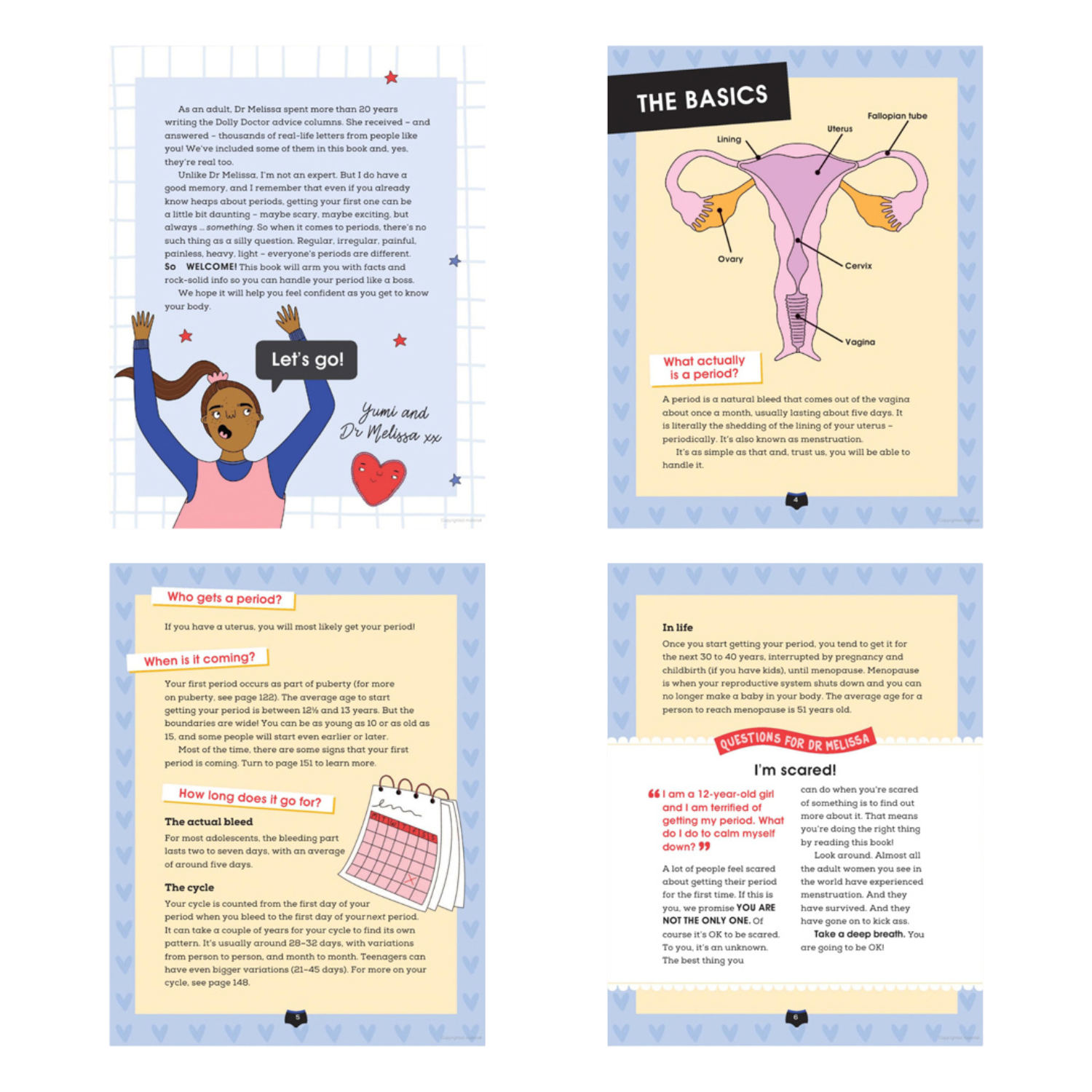
6 TIPS FOR HAVING AWKWARD CONVERSATIONS WITH TEENS.

Who remembers their teenage self? It’s probably fair to say that almost everyone could probably remember a cringe-worthy encounter relating to the (dreaded) “talk”. You know; that you had with your parents, carer, grandparent or someone a lot older that you about how babies are made, sex, sex and contraception (in the form of the presumptive “I hope you’re using protection?” *cringe*), puberty, periods…?
Though the “talk” can come in many iterations, it’s generally known to be nothing short of awkward. But of course, it doesn’t have to be. Here are our 6 top tips for navigating some of those important conversations with your tween or teen:
1. Remember what it was like to be a t(w)een, but be mindful that times have changed.
How many times has your t(w)een has told you that “you’ve got no idea!” Well, we do - and we don’t. Kids seem to forget that we were t(w)wens once too, but sometimes we also fail to acknowledge that whilst we experienced much of what they have or will, times have significantly changed.
Previous generations relied on word-of-mouth, magazines and television as information sources – though sometimes even these were restricted, and we were only told/saw/heard what we were allowed to, or what we could get our hands on.
These days, all those mediums still exist, but kids also have immediate access to virtually anything, anytime, via the internet. If your t(w)een has a mobile phone or access to a computer, they’ve probably already figured out whatever it is they want to know. Though as we know, online info can be conflicting, unreliable, and sometimes needs sense-checking. Plus, nothing can really take the place of a trusted ear to confide in or shoulder to cry on.
2. Pick the right time - and place!
Awkward conversations often become so when they’re sprung on you, especially in an environment you’re not comfortable with. So why not create a situation that encourages conversation to flow naturally? A great way to do this is through a side-by-side activity, which is one that occurs through a shared interest; think preparing a meal together or playing a sport you both like. Basically any environment where everyone involved feels at ease and in a safe space - it’s just human nature that we’re more likely to open up when we feel comfortable.
On the flip side, it’s probably important to not attempt the conversation in a situation where the other person may feel trapped, like in the car (how many awkward conversations did your parents spring on you in the car?! And you had no choice but to sit through them!). There’s got to be a right time and place, just take some time to figure out where that might be. Don’t just do it when it feels right for you; think about when the convo might be more comfortable and welcomed by the other person, too.
3. Ask open-ended questions.
No-one appreciates being talked at or talked down to. By asking open-ended questions, you give the other person the sense that you’re listening and that you care about their opinion. Some examples may be things like: “Have any of your friends at school had their period yet? How do you feel about it?” or “what do you think might happen if you have unprotected sex?” Asking open ended questions may help lead them to their own conclusions.
An opening line might be something like “I’d like to have a chat about some things that I think are really important, and I’d love to get your take on them”.
4. Share.
Sharing builds trust. Share stories about when you were growing up and the experiences you had as a t(w)een. (Remember that you probably made mistakes in your earlier days, too). Ultimately, t(w)eens want to figure life out for themselves and so they’re going to try things whether you like it or not – but it doesn’t mean they’re not still impressionable.
Talk about your own personal highs and lows, the ups and downs, and perhaps what you may have done differently had you known otherwise. Being genuinely vulnerable shows them that it’s safe for them to do the same.
Try and fight the urge to patronise or criticise, but instead explain the various possible outcomes, dangers or consequences they may face as a result of the choices they make.
5. Listen, without judgement.
We have an incredible opportunity to remove any barriers by being open to t(w)eens coming to us and openly asking questions, without the fear of judgement. Listening really helps facilitate that, as it makes a person feel respected and valued, as they should be.
It’s important to not interrupt them when they’re talking; they may come to their own conclusions by simply thinking out aloud, or it may prompt them to ask you important questions that will help their thinking. Try and think of these talks as sharing discussions, rather than a lecture or a lesson. If a t(w)een comes to you after a situation where there has been an undesirable outcome, ask them what they may do differently the next time. Making good choices in the future sometimes involves knowing the difference between the good and the bad ones.
6. Seek professional guidance and support.
We’re certainly not doctors or psychology professionals, but a team of passionate peeps sharing our own experiences - many of us with t(w)eens of our own or with t(w)een siblings, and we’ve also lived and breathed a personal care business for 15+ years – so there have been many an in-depth and awkward conversations had at MoxieHQ over that time!
There are a heap of other resources out there, too, depending on your situation; organisations like The Butterfly Foundation (for eating disorders and body image issues), Reach Out (for youth mental health) and the Brave Foundation (for pregnant and parenting young people) that exist to support kids and families during challenging times. Don’t be afraid to seek help.










